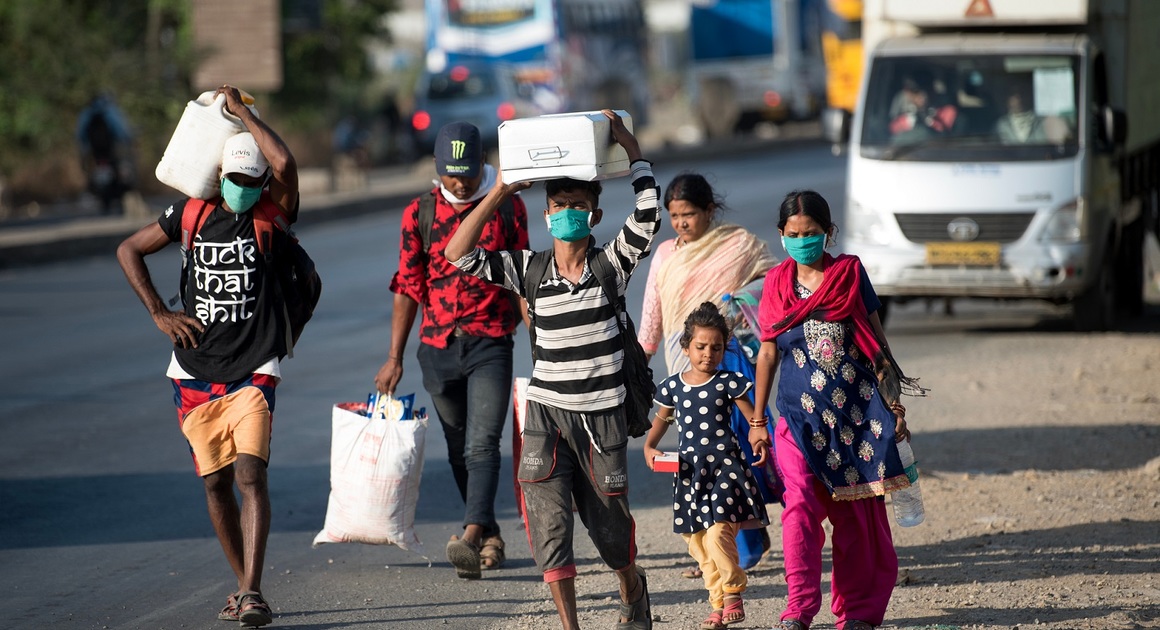COVID-19 Unions and civil society call for urgent justice mechanism for migrant workers

Public Services International, along with the International Trade Union Confederation and the Building and Woodworkers International, join forces with civil society allies in calling for an Urgent Justice Mechanism for Migrant Workers in the face of the COVID-19 pandemic.
- Read this in:
- en

Genevieve Gencianos
As a backlash of the pandemic, millions of workers are losing their jobs, including among them migrant workers. Stranded in the destination countries, migrant workers are left in deep hardships as they struggle from the loss of work, non-payment of wages, forced to take unpaid leave or reduced wages, confined in poor living conditions, excluded from financial support and with no social protection.
Since the start of the pandemic, more than 200,000 migrant workers have been repatriated to Asia from different parts of the world
In most cases, migrant workers in low-wage occupations, such as domestic workers, care workers, workers in hotels, catering and tourism, are not able to exercise their rights in the repatriation procedures, and many are stranded in the host countries without access to services or support. Millions will be repatriated to situations of debt bondage as they will be forced to pay off recruitment fees and costs, despite returning empty handed. In the Middle East, an estimated 5 million jobs will be lost, many of those jobs are held by migrant workers. Since the start of the pandemic, more than 200,000 migrant workers have been repatriated to Asia from different parts of the world. This number is expected to rise exponentially over the next few months. Countries like India, Nepal, Bangladesh and the Philippines, anticipate the eventual return of a large number of their migrant workers population abroad.
Under the above conditions, repatriation poses additional challenges. Without proper controls and accountability procedures, employers can take advantage of mass repatriation programs to terminate and return workers who have not been paid their due compensation, wages and benefits. Without ensuring that companies and employers are doing their due diligence to protect and fulfil the human rand labour rights of repatriated migrant workers, states across the migration corridor become complicit in overseeing procedures where millions of workers will be returning without their earned wages or workplace grievances being heard, nor seeing justice in their situation.

An Indian migrant female laborer sitting in the train ready to leave the city due to covid-19 pandemic, Rajasthan, India. May 2020/ © Mukesh Kumar Jwala/ Shutterstock
“It is in this urgent moment that solidarity is most crucial, and we have to look after those who are the most vulnerable among us,” says Kate Lappin, PSI Regional Secretary for Asia Pacific. “Trade unions and civil society organizations join forces within and across our regions to bring cross-border justice in protecting the human and labour rights of migrant workers, which include their rights to their wages, benefits and due compensation,” asserts Lappin.
An Urgent Justice Mechanism for Migrant Workers
Trade unions and civil society organizations call upon the governments of countries of origin and destination to urgently put in place a transitional justice mechanism with the following objectives:
The transitional justice mechanism will address grievances, claims and labour disputes of repatriated workers who have lost their jobs as a result of the pandemic. That the mechanism needs to be expedited, accessible, affordable, and efficient.
It should be a priority to guarantee that all repatriated workers with legitimate claims are able to access justice and some kind of compensation.
While it must be of the utmost importance to ensure that cases are resolved as soon as possible, without delay, especially in cases involving labour disputes, safeguards must be put in place to ensure that migrants are able to pursue their cases post return. Access to legal advice and support, facilitating power of attorney procedures, and easing requirements for in-person testimony and court appearance or appearance in front of a tribunal/grievance mechanism are paramount.
States should require employers and businesses to keep all employment records, including payroll, employee lists, and hours worked and allow workers to take copies of their records with them.
PSI, together with the Global Unions and civil society allies, will be working with its unions in the migration corridors in the Middle East and Asia Pacific, in putting this Justice Mechanism in place. The Justice Mechanism will put into work the rights-based approach to labour migration, based on the application of human rights norms and labour standards, with proper accountability mechanisms, and supported by workers, civil society and migrant workers themselves.